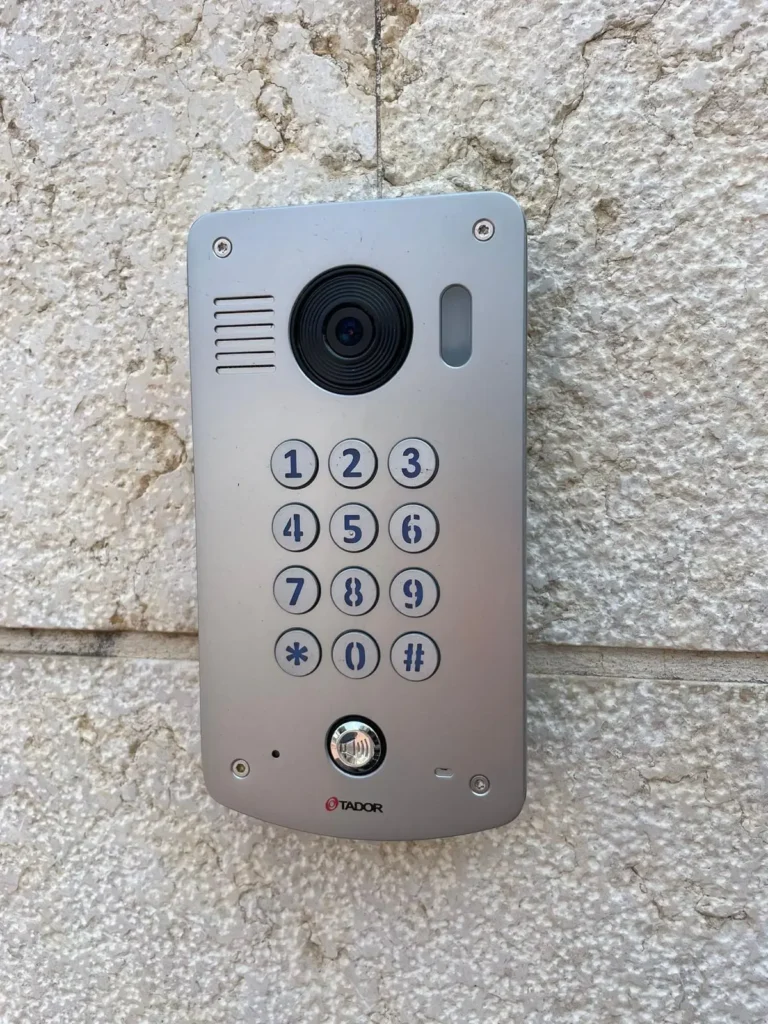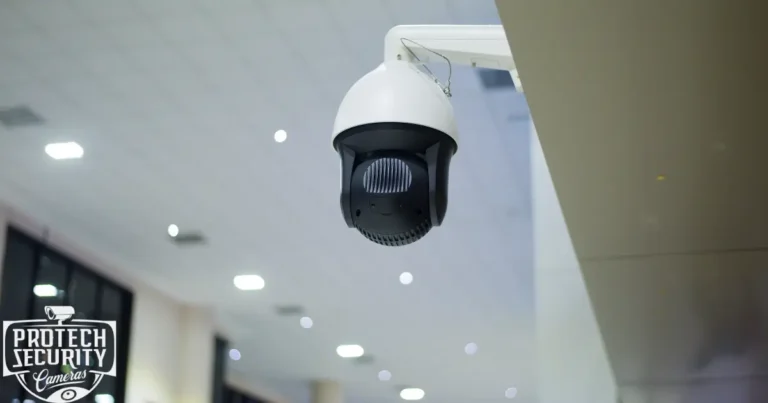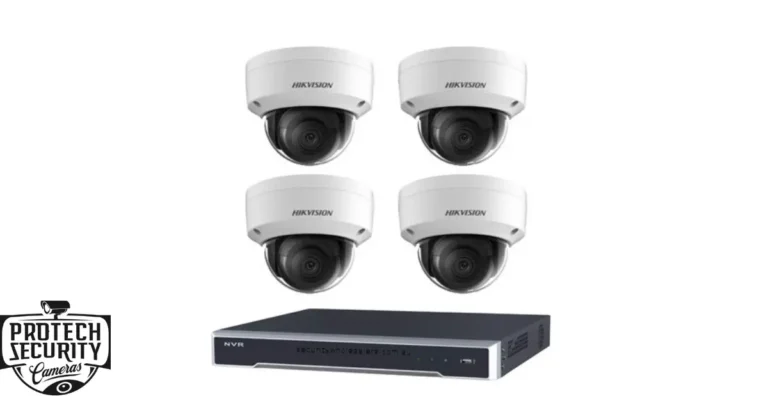In the current business environment, security is paramount for companies of all sizes. Access control systems have emerged as vital in enhancing business security, offering sophisticated solutions beyond traditional locks and fundamental mechanisms. ProTech Security Cameras, a leading provider of security systems in Dallas, TX, specializes in selling and installing comprehensive access control systems tailored to businesses’ unique needs. This article explores how access control systems enhance business security and the benefits they bring.
1. Introduction to Access Control Systems
Access control systems are designed to manage and regulate who can enter or exit different areas within a business facility. These systems use authentication methods, such as key cards, biometrics, PIN codes, and mobile credentials, to grant or deny access. By implementing an access control system, businesses can ensure that only authorized personnel access specific areas, enhancing overall security.
2. Enhanced Physical Security
Restricting Unauthorized Access
One of the primary benefits of access control systems is the ability to limit unauthorized access. Traditional keys can be easily lost, stolen, or duplicated, posing a significant security risk. In contrast, access control systems use credentials that are much harder to replicate and can be easily deactivated if lost or stolen. This ensures that only authorized individuals can enter sensitive areas, reducing the risk of theft, vandalism, or other malicious activities.
Detailed Access Logs
Access control systems maintain detailed logs of who enters and exits specific areas and when. This information is invaluable in a security breach, providing a clear record of who was present and when. These logs can help in investigations and can also be used to identify patterns that may indicate potential security issues.
3. Improved Operational Efficiency
Streamlined Access Management
Managing physical keys for a large workforce can be cumbersome and time-consuming. Access control systems streamline access management by allowing administrators to add or remove access permissions for employees easily. This is particularly useful for businesses with high staff turnover or those that need to grant temporary access to contractors or visitors.
Integration with Other Systems
Modern access control systems can be integrated with other security and business systems, such as surveillance cameras, alarm systems, and time and attendance tracking. This integration creates a cohesive security infrastructure that enhances overall efficiency and effectiveness. For example, if an access control system detects unauthorized access, it can automatically trigger an alarm and notify security personnel, ensuring a swift response.
4. Increased Safety for Employees
Emergency Response
In an emergency, such as a fire or active shooter situation, access control systems can play a crucial role in ensuring the safety of employees. These systems can be programmed to unlock all doors or specific escape routes automatically, facilitating a quick and safe evacuation. Additionally, they can provide real-time information on who is in the building, aiding emergency responders.
Reduced Internal Threats
Not all security threats come from outside a business; internal threats, such as employee theft or sabotage, can pose significant risks. Access control systems help mitigate these risks by limiting access to sensitive areas and maintaining detailed access logs. This deters potential wrongdoers and helps identify the perpetrators if an incident occurs.
5. Cost-Effective Security Solution
Reduced Need for Physical Security Personnel
Businesses can reduce their reliance on physical security personnel by automating access control. While human guards are still necessary for certain situations, access control systems can handle many routine security tasks, such as monitoring entry points and verifying credentials. This can lead to significant cost savings over time.
Lower Insurance Premiums
Many insurance providers offer reduced premiums for businesses implementing comprehensive security systems, including access control. By demonstrating a commitment to security, companies can lower their risk profile and enjoy financial benefits through lower insurance costs.
6. Customizable Access Levels
Role-Based Access Control
Access control systems allow businesses to implement role-based access control (RBAC), where access permissions are based on an individual’s organizational role. For example, a manager might have access to all areas, while a regular employee might only have access to their specific department. This ensures that employees can only access the areas they need to perform their job duties, enhancing security and minimizing the risk of unauthorized access.
Temporary Access for Visitors and Contractors
Access control systems can easily accommodate temporary access needs for visitors, contractors, or temporary employees. Administrators can issue temporary credentials that expire after a certain period or upon completion of a specific task. This flexibility ensures that temporary access does not compromise overall security.
7. Advanced Authentication Methods
Biometric Authentication
Biometric authentication methods, such as fingerprint scanning, facial recognition, and iris scanning, provide a high level of security by verifying an individual’s unique physical characteristics. These methods are difficult to forge or duplicate, making them ideal for securing sensitive areas.
Mobile Credentials
Mobile credentials are becoming increasingly popular as employees use their smartphones to gain access. This method leverages the security features of modern smartphones, such as fingerprint readers and facial recognition, providing a convenient and secure way to manage access. Additionally, mobile credentials can be easily managed and updated remotely, enhancing flexibility.
Multi-Factor Authentication
Multi-factor authentication (MFA) requires individuals to provide two or more forms of identification before gaining access. For example, employees might need to swipe their key card and enter a PIN code. MFA significantly enhances security by adding an extra layer of protection, making it more difficult for unauthorized individuals to gain access.
8. Compliance with Regulatory Requirements
Industry-Specific Regulations
Many industries are subject to specific regulatory requirements regarding security and data protection. Access control systems help businesses comply with these regulations by providing detailed access logs, advanced authentication methods, and robust security measures. For example, healthcare facilities must comply with HIPAA regulations, which mandate strict control over access to patient records. An access control system can help ensure compliance by restricting access to authorized personnel and maintaining detailed logs of access attempts.
Data Protection and Privacy
Access control systems also play a critical role in data protection and privacy. Businesses can prevent unauthorized access and data breaches by controlling access to areas where sensitive data is stored. This is particularly important for companies that handle personal data, financial information, or intellectual property.
9. Enhanced User Experience
Convenience for Employees
Access control systems enhance the user experience by providing a convenient and seamless way for employees to access the needed areas. Key cards, mobile credentials, and biometric authentication methods are quick and easy to use, reducing the time and hassle associated with traditional keys.
Visitor Management
Access control systems can also improve visitor management. Visitors can be issued temporary credentials to access specific areas without needing a physical escort, streamlining the process and ensuring a positive experience for visitors while maintaining security.
10. Scalability and Future-Proofing
Modular System Design
Access control systems are designed to be scalable, allowing businesses to expand and upgrade their security infrastructure as needed. Modular components can be added or replaced without requiring a complete system overhaul, ensuring the system can grow with the business.
Future-Proof Technology
Businesses can future-proof their security infrastructure by investing in a modern access control system. Many systems are designed to accommodate emerging technologies, such as AI and IoT, ensuring that companies can stay ahead of evolving security threats and take advantage of new capabilities as they become available.
11. Real-World Applications and Case Studies
Office Buildings
Office buildings often have multiple tenants and high foot traffic, making security a complex challenge. Access control systems can provide secure access to common areas while restricting access to individual offices and sensitive areas. This ensures that tenants and visitors can move freely while maintaining overall security.
Healthcare Facilities
Healthcare facilities must protect patient data and control access to sensitive areas, such as medication storage and operating rooms. Access control helps ensure compliance with regulatory requirements and enhance patient safety by restricting access to authorized personnel.
Educational Institutions
Schools and universities face unique security challenges, including protecting students and staff while maintaining an open and welcoming environment. Access control can secure entrances, dormitories, and sensitive areas, ensuring a safe and secure campus.
Retail Stores
Retail stores must protect against theft and manage access to stockrooms and employee-only areas. Access control systems provide a secure and efficient way to manage access, reduce shrinkage, and enhance overall security.
Conclusion
Access control systems are a critical component of modern business security. They. They offer a range of benefits that enhance physical security, improve operational efficiency, and provide a safer environment for employees and visitors. By leveraging advanced authentication methods, integrating with other security systems, and providing detailed access logs, access control systems help businesses protect their assets and comply with regulatory requirements.
ProTech Security Cameras, based in Dallas, TX, specializes in selling and installing comprehensive access controls tailored to businesses’ unique needs. By investing in a modern access control system, companies can enhance their security infrastructure, reduce costs, and ensure a safe and secure environment.



